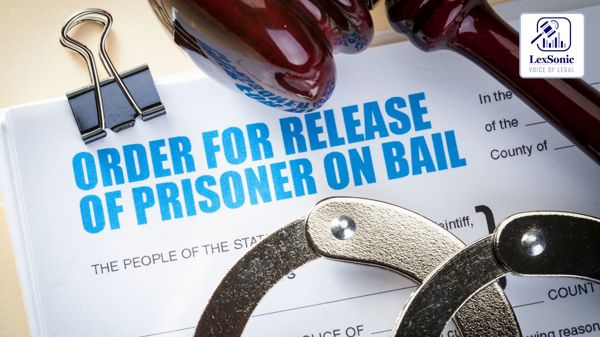In a significant development in the case of Gopal Radheshyam Yadav, a criminal bail application was filed seeking enlargement on bail in the MCOC Special Case No.17 of 2018, pending before the Additional Sessions Judge, Thane. Yadav, one of the accused in the case, had been incarcerated for over six years on charges related to organized crime under the Maharashtra Control of Organized Crime Act (MCOC Act), along with several sections of the Indian Penal Code (IPC) and other special laws.
The Case Overview:
The application was filed by Yadav, who faces serious charges under sections of the IPC (including attempted murder, robbery, and criminal conspiracy) and several provisions of the MCOC Act. The case stems from an incident that occurred on 2nd August 2018, where Yadav and his accomplices allegedly attempted to snatch a handbag from the complainant, Pradeep Jain. The situation escalated when Yadav allegedly used a knuckle fighter to injure the complainant, and a firearm was reportedly discharged at him.
Yadav, who was arrested on 3rd August 2018, has been in custody for over six years without a charge being framed or a trial taking place. The prosecution contends that the accused is a member of an organized crime syndicate led by Mahendra Yadav (Accused No. 1) and invokes provisions of the MCOC Act to substantiate this claim.
The Arguments for Bail:
The defense, led by Advocate Mr. Pandey, highlighted several key points in support of the application for bail. First, he emphasized the long period of incarceration without any charges being framed, which raised concerns about the violation of Yadav's right to a speedy trial, a fundamental right guaranteed under Article 21 of the Constitution. Moreover, he pointed out that the trial process had not progressed despite more than six years of detention, making Yadav’s continued incarceration unreasonable.
Mr. Pandey also argued that the invocation of the MCOC Act was premature, as the predicate offense (a prior crime connected to organized crime) was not properly substantiated. He contended that the prosecution had not shown a sufficient nexus between Yadav and the activities of Accused No. 1, Mahendra Yadav, the alleged leader of the crime syndicate. Moreover, the FIR that allegedly links Yadav to organized crime was registered much later (in November 2018), which raised doubts about the timeline and the legitimacy of invoking the MCOC Act.
The defense further pointed to inconsistencies in witness statements and the lack of solid evidence linking Yadav to the violent incident. For example, the first informant's statements varied in key details, including the identification of the person who allegedly fired the gun. Additionally, although Yadav was apprehended at the scene, no weapon was recovered from him, which further weakened the prosecution’s case.
Prosecution’s Response:
The prosecution, represented by Ms. Phad, opposed the bail application, emphasizing the gravity of the charges and Yadav's alleged involvement in organized crime. She cited the confessional statement of Accused No. 1 (Mahendra Yadav), recorded under Section 18 of the MCOC Act, as evidence of Yadav's involvement in a broader crime syndicate. The prosecution argued that Yadav’s actions and his association with the leader of the syndicate warranted the invocation of the MCOC Act, even if the predicate offense was registered belatedly.
Furthermore, the prosecution pointed out that Yadav was involved in other crimes, including cases registered in Uttar Pradesh, which were relevant to establishing his participation in organized crime. It was argued that the definition of “organized crime” under the MCOC Act, which includes a continuing unlawful activity undertaken as part of a syndicate, was met in this case due to Yadav’s alleged association with Mahendra Yadav.
Court's Findings and Ruling:
After carefully considering the arguments from both sides, the court observed that while there was an attempt to establish Yadav’s involvement in organized crime through the MCOC Act, the prosecution had failed to provide a clear and consistent narrative. The court noted the discrepancies in the witness statements and acknowledged that the confessional statement of Accused No. 1 did not directly implicate Yadav in the commission of the crime.
Additionally, the court found that the invocation of the MCOC Act was not substantiated by sufficient evidence, especially considering that the FIR linking Yadav to the predicate offense had been filed much later than the incident. The court also noted that no charge had been framed against Yadav for over six years, further emphasizing the delay in the trial process.
In light of these factors, the court concluded that Yadav’s right to a speedy trial had been compromised, and he had already spent a substantial amount of time in custody without charges being framed. Consequently, the court granted bail to Gopal Radheshyam Yadav on the following conditions:
- Yadav is to be released on bail in the sum of Rs. 50,000 with one or two sureties of the same amount.
- He is required to report to the Tilak Nagar Police Station, Dombivli, once a month.
- Yadav must cooperate with the conduct of the trial and attend court on all dates.
- He shall not leave the State of Maharashtra without prior permission from the trial court.
- Yadav is prohibited from influencing witnesses or tampering with evidence.
- He must inform the Investigating Officer of any change in address or contact details.
Conclusion:
This ruling highlights the delicate balance between the need to curb organized crime and the fundamental right of an accused to a speedy trial. The court's decision to grant bail, despite the prosecution’s claims of Yadav’s involvement in a criminal syndicate, underscores the importance of a fair and thorough investigation. It also serves as a reminder of the importance of timely legal proceedings and the necessity of ensuring that an accused person’s right to liberty is not unduly curtailed due to procedural delays.
Indian Penal Code, 1860
Maharashtra Control of Organised Crime Act, 1999

